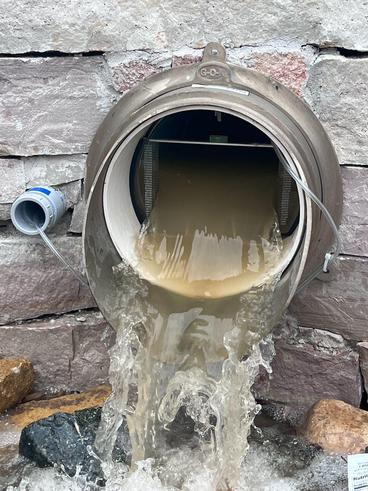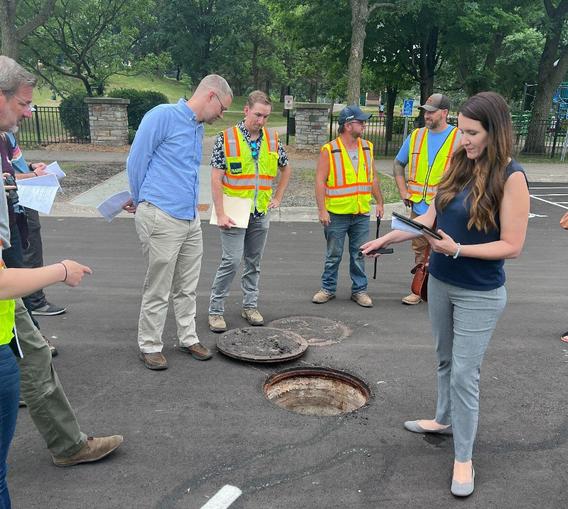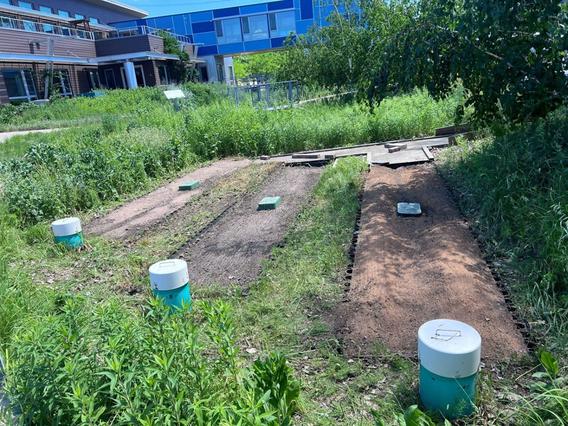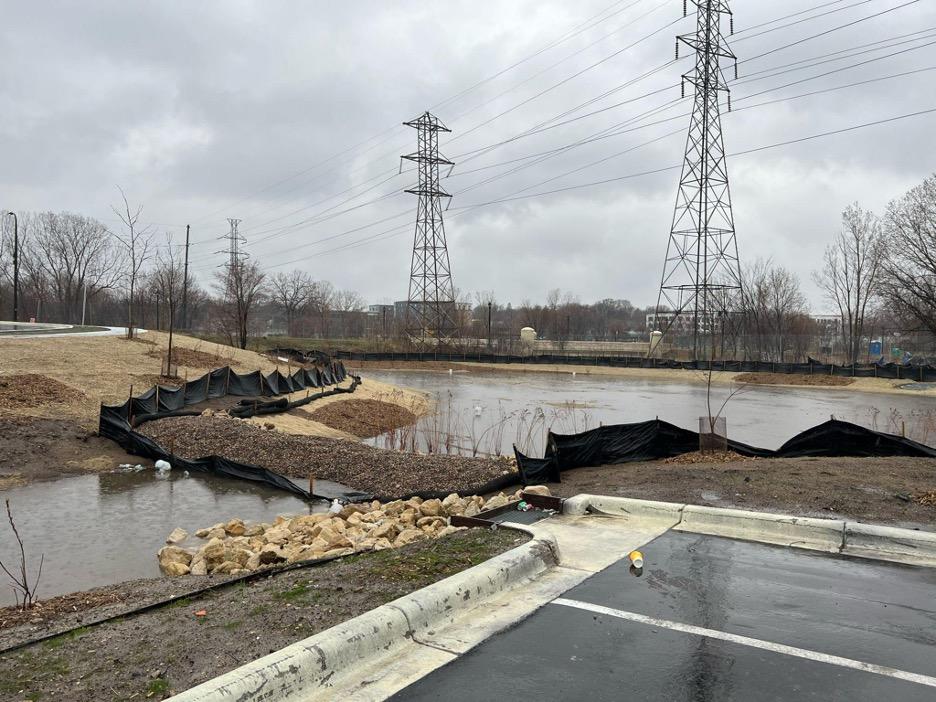
The October extension column is by Minnesota Sea Grant and Water Resources Center Water Resource Management and Policy Extension Educator John Bilotta. Stormwater best management practices established through research are used to prevent and minimize impact to local water resources.
Photo credit: J. Bilotta.
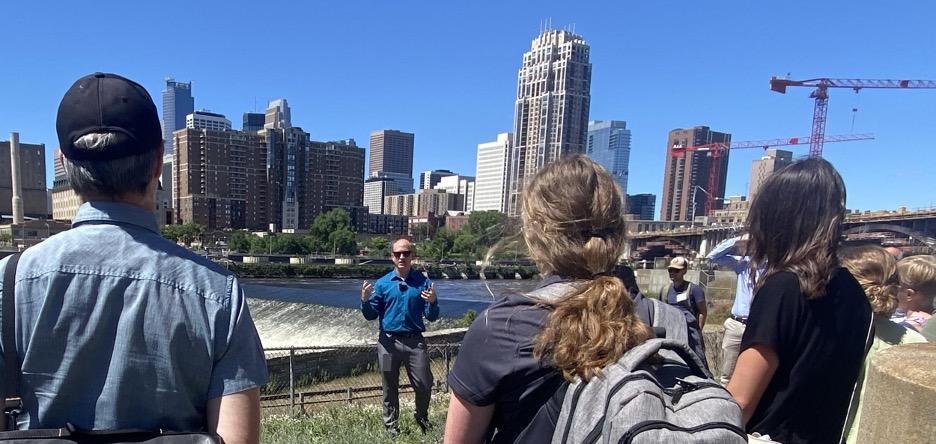
Andy Erickson highlights the 2020 project Biofiltration Media Optimization – Phase II: Multi-Year Performance, Impacts of Road Salt, and Optimized Organic Ratio during the annual Minnesota Stormwater Research Council meeting in July, 2022. The project is located at the St.Anthony Falls Outdoor Stream Lab, immediately adjacent to the Mississippi River in Minneapolis. Image credit: M. Karschnia.
The sediment traps, forebays, infiltration basins, rock inlets and other practices (shown in the June 2022 photo at the top of the page) manage stormwater runoff from this parking lot adjacent to Bassett Creek in Minneapolis. They slow the runoff by controlling its release and promoting infiltration into the soil and minimize the pollutants reaching the creek.
A collaboration of Minnesota water professionals are finding answers to priority questions about how urban stormwater runoff can be more effectively and efficiently managed to prevent, minimize, and mitigate the impacts on local lakes, streams, rivers and groundwater resources. Urban stormwater runoff can negatively impact water resources by altering the rate and volume (quantity) of runoff that can lead to downstream flooding and provide a pathway for pollutants (quality) that can negatively impact the use of water resources for drinking water, recreation, fisheries, transportation and other ecosystem services.
Image credit: John Bilotta.
The collaboration includes University and non-University affiliated professionals such as researchers, state agencies, local city and watershed professionals, and private engineers and resource managers. The group, brought together under the umbrella of the Minnesota Stormwater Research Council, includes a 20-member advisory board that assists in identifying research priorities and selecting projects. The collaboration is part of the Water Resources Center (WRC) Stormwater Research and Technology Transfer Program.
Minnesota Sea Grant (MNSG) supports two positions associated with these efforts: A research administrator (John Bilotta) and an extension educator (Maggie Karschnia) and has a representative on the advisory board. MNSG seeks to ensure that the needs of MNSG stakeholders are reflected, where possible, in WRC research priorities and seeks to connect synergistic research activities between MNSG-funded research and WRC-funded projects.
The WRC Stormwater Research and Technology Transfer Program seeks to conduct high-priority research while ensuring that information and research discoveries are made available to those who can best use it (e.g., Minnesota urban stormwater planners, engineers, designers, and resource managers).
The Water Resource Center’s Minnesota Stormwater Seminar Series is an example of how the WRC provides monthly opportunities for stormwater professionals and practitioners to connect with researchers. More information and the seminar schedule are online.
In July, 2022, WRC and MNSG staff hosted the Minnesota Stormwater Research Council annual meeting with more than 80 participants; half participating in-person and half participating virtually. New in 2022-23 will be a pilot program called Clean Sweep Education and Training, which is an extension training and education program designed to aid cities in developing and implementing enhanced street sweeping strategies and plans to remove pollutants from roadways. Effective street sweeping is one of the most effective and efficient pollution prevention methods to reduce or prevent pollutants from reaching water resources.
More information:
